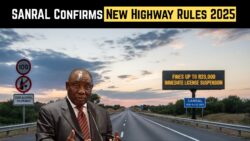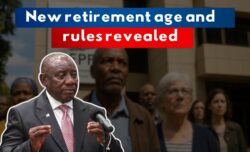Starting october 1 2025 South Africa will change how it handles traffic fines. The Road Traffic Management Corporation is working with local transport offices to create new fines for bad driving. They want to stop people from speeding and driving drunk. These changes are meant to make roads safer and save lives. The new rules will bring bigger fines and more cameras on the roads. Drivers need to learn about these changes to avoid paying a lot of money or losing their license. We’ll tell you about the new fines and rules. You’ll also learn how to pay fines and where to get help if you need it.
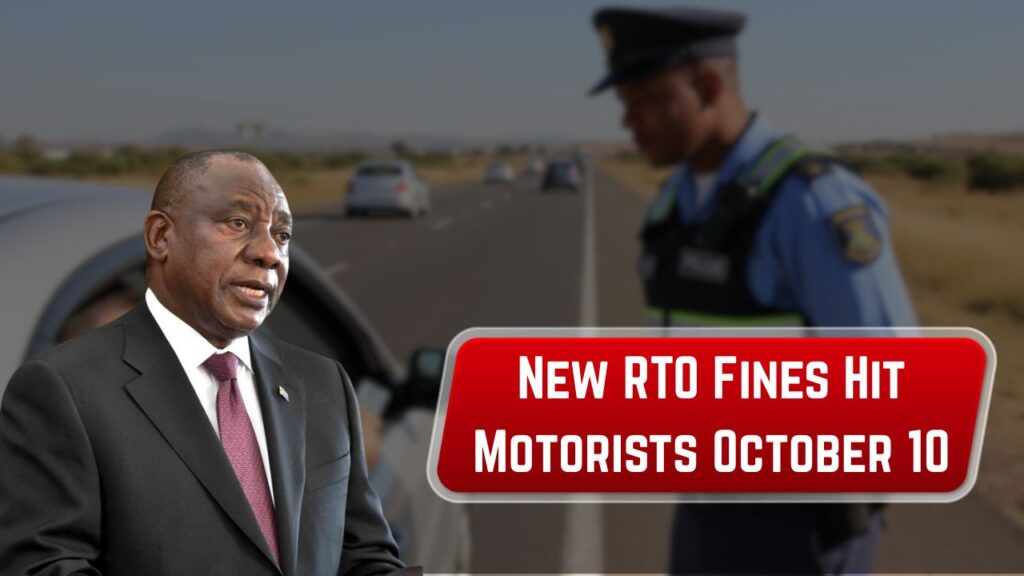
South Africa’s New RTO Fine Rules Explained
The Department of Transport has started new traffic fines on october 1. These rules now work in all areas of the country including Gauteng KwaZulu-Natal and Western Cape.
The new fines focus on these main points: Drivers will pay more for speeding near schools and homes No tolerance for drinking and driving Trucks that carry too much weight will face bigger fines Using phones while driving will cost you more Driving without proper license papers will lead to higher fines The main goal is to make roads safer & stop people from dying in crashes.
This is extra important during busy holiday times and rush hours. The text is now more straightforward & easier to read. It uses basic words and shorter sentences while keeping the important information.
Complete RTO Penalty Chart Effective October 10
| Violation | Old Fine (ZAR) | New Fine (ZAR) | Penalty Points | License Suspension Risk |
|---|---|---|---|---|
| Speeding (20–40 km/h over limit) | 500 | 1,200 | 2 | No |
| Speeding (40+ km/h over limit) | 1,000 | 2,500 | 5 | Yes |
| Drunk Driving (any detectable BAC) | 2,000 | 5,000 | 6 | Yes |
| Using mobile phone while driving | 750 | 1,800 | 3 | No |
| Driving without a valid license | 1,000 | 2,200 | 4 | Yes |
| Overloading (commercial vehicles) | 1,500 | 3,000 | 4 | Possible |
| Not wearing seatbelt | 250 | 1,000 | 1 | No |
| Ignoring traffic signals or stop signs | 700 | 1,600 | 3 | No |
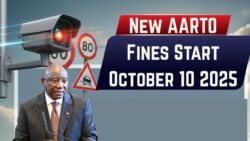 New AARTO Fines Effective October 10 – Here’s the Complete 2025 Penalty List You Need to Know
New AARTO Fines Effective October 10 – Here’s the Complete 2025 Penalty List You Need to Know
Simple Steps to Pay Your Latest Traffic Fines
Pay your fine quickly to avoid extra fees and legal trouble. You have three easy ways to pay.
– First you can go to the website www.aarto.gov.za and pay online.
– Second, you can visit a traffic department or post office near you to pay in person.
– Third, you can make a bank transfer but remember to use your ticket number when you pay.
Don’t forget to save your payment proof. If you ignore the fine you might get points on your license or end up in court. It’s best to take care of it right away. The process is simple & will save you headaches later. Just pick the payment method that works best for you and get it done.
Disputing or Challenging an RTO Fine in SA
You get 32 days after getting your ticket to fight it. The steps are pretty basic.
– First fill out a form called AARTO 08 on the website or go to an office.
– Make sure you have proof to back up your case like videos from your car people who saw what happened or papers showing wrong info on the ticket.
– After you send everything in just wait for the officer to look at your case and decide.
If they say no to your challenge you have two options.
– You can just pay the fine right away or you can take it to the AARTO court. But remember you only have 30 days to go to court after they reject your first try.
That’s all there is to it. The process is straightforward but you need to act fast & have good proof to support your side of the story.
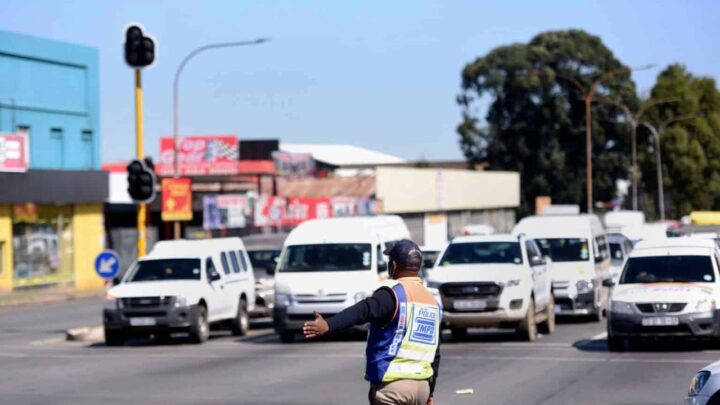
Road Safety Reforms and AARTO’s New Focus
The government is adding new fines & putting more safety checks on the roads.
– They are installing smart speed cameras that use AI technology.
– They’re also setting up more spots to check if drivers have been drinking alcohol.
– New systems that can read license plates are being added too.
All these changes are helping make South African roads safer for everyone. The Department of Transport wants drivers to follow the rules and drive safely. They also ask people to tell them about any dangerous driving they see on the roads.
